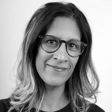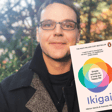
TEBI podcast 44: Lisa Granik MW on wine, travel, law and becoming a world expert in your second career
In the fourth of a series of 12 TEBI episodes looking at meaning and money during later careers or second lives, Jonathan Hollow interviews Master of Wine Lisa Granik about her remarkable second life as a world expert on the wines of Georgia, the country in the Caucasus.
She reflects on transitioning from law to becoming a wine academic - thanks to her unique skills and background. She shares insights about Georgian wine culture, its historical significance, and economic impact. Lisa addresses challenges she has faced as a woman in the wine industry, and reflects on the changing roles of women in wine. The conversation delves into her deep connections with Georgia and her book "The Wines of Georgia”, which explores the culture, history, terroirs, and personalities of Georgian winemaking.
And she describes how she has found her way from one stage to another in her life - sometimes taking a sharp turn, sometimes gradually.
This podcast series has been developed with financial planning firm Mulberry Bow. Based in London, they offer a highly personalised service to around 150 individuals and families. Robin Powell and Jonathan Hollow are very grateful for their enthusiastic support for "Second Lives”.
Transcript of this podcast: https://www.evidenceinvestor.com/second-lives-living-the-dream-as-a-master-of-wine/ --
Links to key mentions in this podcast: “The Wines of Georgia” - https://www.amazon.co.uk/wines-Georgia-Infinite-Classic-Library/dp/1913022005/ --
“Granik’s Guide to Georgian Wines” - https://www.graniksguide.com/en/ —
Mulberry Bow financial planners: https://mulberrybow.com/ —
How To Fund The Life You Want: http://tinyurl.com/how2fund --
Picture of Lisa Granik by Giorgi Gegelia, Orkoli Winery















